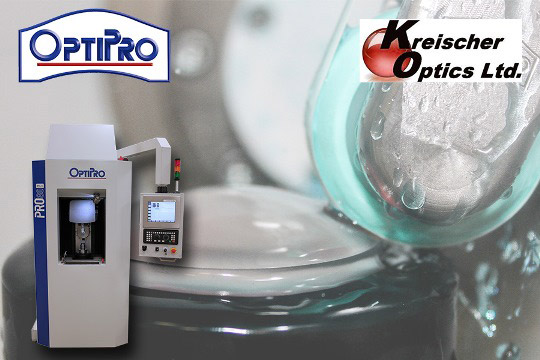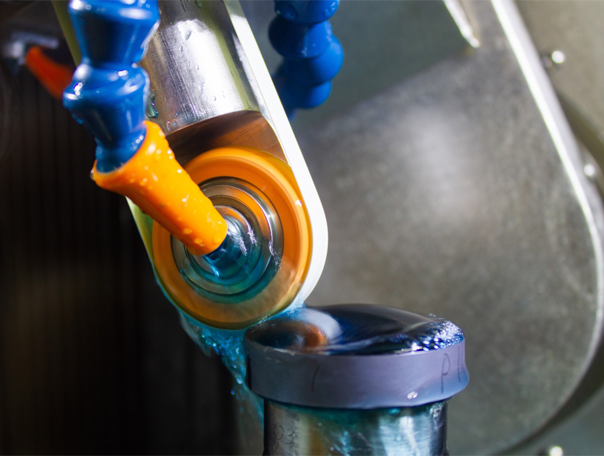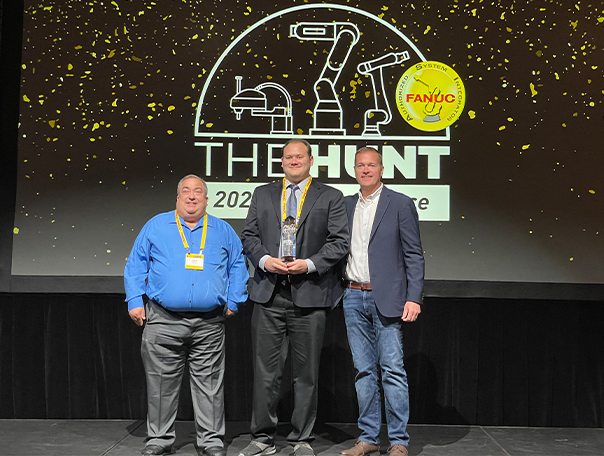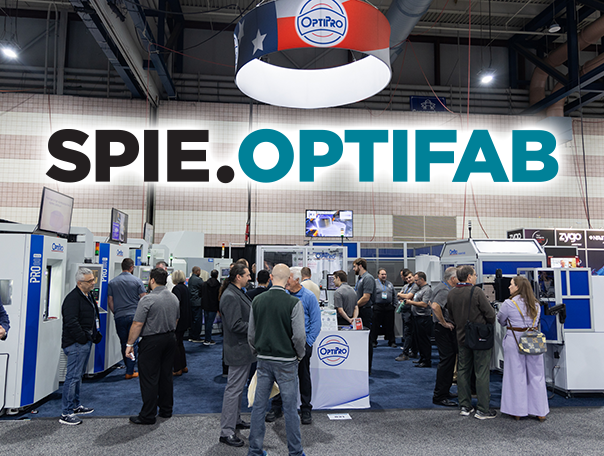An OptiPro Systems and Kreischer Optics Case Study
Kreischer Optics Company Profile

In 1986 Cody Kreischer succeeded his father, Emil, as president of ![]() Kreischer Optics, which he had founded in 1948. Cody concentrated on integrating custom solutions for asphere manufacturing technology.
Kreischer Optics, which he had founded in 1948. Cody concentrated on integrating custom solutions for asphere manufacturing technology.
His expertise in optical design and innovative thinking enabled Kreischer Optics to evolve into a state-of-the-art production facility. Along with world class aspheres, the company also produces a wide variety of precision spherical and cylindrical optics. Kreischer Optics’ equation for success is simple: Master Opticians + State-of-the-Art Technology = Maximum Customer Value.
Challenge
Kreischer Optics had been producing pre-production quantities of a particular aspheric lens, which due to its extreme shape near the edge, could only be finished by hand polishing. This hand polishing was costly due to the time and skill required. With the opportunity to manufacture hundreds of this particular lens on the horizon, Kreischer Optics would need a solution that maximized process efficiencies while maintaining high precision.
Technical Situation
The difficult geometry of this asphere included a clear aperture of 16.3mm with a localized radius of 9mm. Before advancements in computer-numerically controlled (CNC) asphere manufacturing technology, hand polishing would have been one of the only conceivable solutions to produce an asphere of this difficulty. Hand polishing aspheres involves a skilled optician utilizing the combination of artisan techniques and a “broken” pitch lap that conforms to the surface of the optic. This method is not ideal for high volume production of aspheres, as it is an expensive and time consuming process. In order for Kreischer Optics to meet their customer’s production requirements and maintain the necessary surface accuracy, an advanced asphere finishing solution would be required.
Solution
After a thorough evaluation of Kreischer Optics’ existing opportunity and future business objectives, OptiPro concluded that their patented process UltraForm® Finishing (UFF) aligned perfectly with the company’s goals. UFF is capable of polishing ground surfaces to finished specifications using a deterministic algorithm. Because of the part diameter of their current asphere challenge, the PRO 80 UFF would be the ideal UFF platform to help Kreischer Optics achieve optimal results, but a smaller wheel would need to be developed. The extreme difficulty of this asphere was the inspiration behind the innovation of the 12mm Ultrawheel. By utilizing the PRO 80 UFF with the new wheel, in conjunction with Kreischer Optics’ experience in polishing aspheres, the hand polishing aspect was eliminated and an affordable asphere was born. The versatility of the PRO 80 UFF, with multiple belt and wheel combinations available, also gave Kreischer Optics increased capacity to accommodate an extensive range of future asphere requests.
Impact
According to John Taylor, General Manager at Kreischer Optics:
“Teaming up with OptiPro has been one of the best decisions Kreischer Optics has made. With the PRO 80 UFF, we can finish difficult aspheres such as the job that required the 12mm wheel, less challenging aspheres, and everything in between. UFF’s versatility allows us to finish a wide variety of optical materials while consistently achieving a surface form error of 0.2 microns PV.
The combination of the PRO 80 UFF and the two larger UFF platforms we’ve invested in gives our company the capability to fabricate thousands of aspheres a year at an affordable price.“




